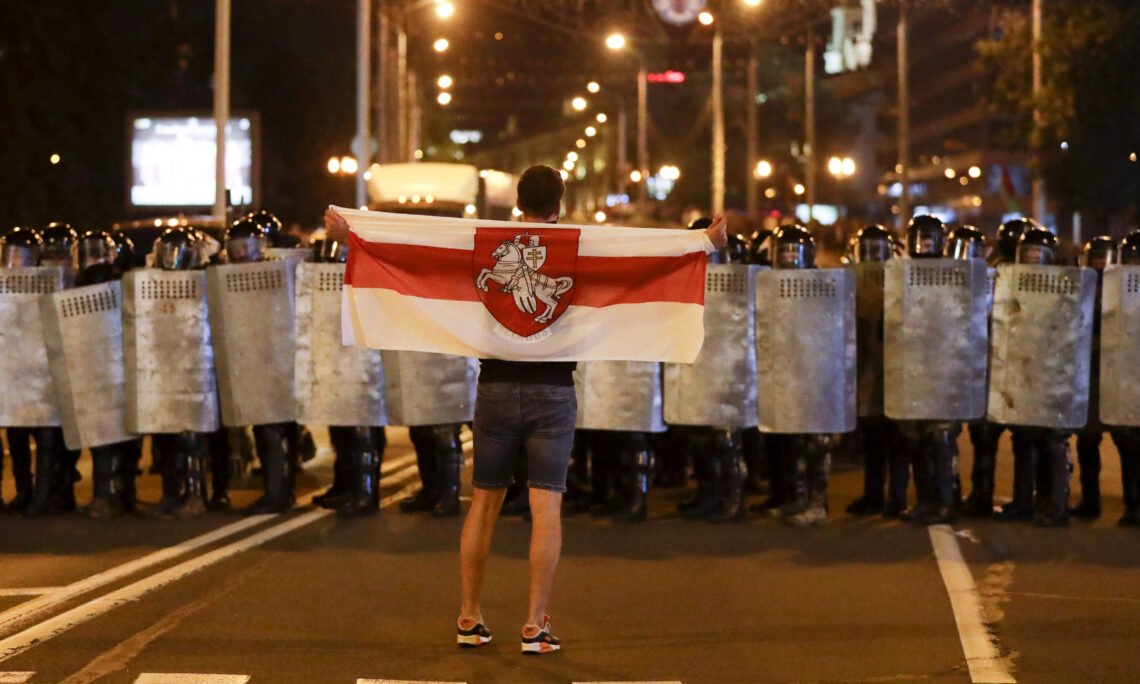In February 2021, some Russian media reported that the German government would provide considerable financial assistance to the Belarusian opposition forces fighting against Alexander Lukashenko. We checked whether this is actually true.
According to official data, the current head of state Alexander Lukashenko won the presidential elections in Belarus in August 2020. Tens of thousands of Belarusians disagreed with the voting results announced by the Central Election Commission, released at protests and many European countries, including Germany. On February 6 and 7, 2021, Russian media reported that the German government would allocate €21 million to Belarusian opposition politicians. News with corresponding headlines was published, in particular, on portals Russia Today, Pravda.ru, "Journalistic Truth" And "Red inesleep".
February 6 took place online conference of solidarity with Belarus. The organizer of the meeting spoke community “Belarusians Abroad”. In addition to the country's ex-presidential candidate Svetlana Tikhanovskaya and her supporters, the event was attended by Lithuanian Prime Minister Ingrida Simonyte, Czech Foreign Minister Tomas Petříček, Vice-President of the EU Parliament Nicola Beer and other European politicians.
German Foreign Minister Heiko Maas sent video message to the conference participants. In his statement, the diplomat emphasized that the European Union and Germany support Belarusians in their quest for democracy, and recalled that his country has imposed sanctions against Lukashenko and his regime. Maas also said that Germany plans to allocate €21 million to support those who suffered from the actions of the Belarusian authorities. In particular, the money will be used for scholarships for students who were expelled for participating in protest demonstrations, psychological assistance to victims of torture and assistance to those Belarusians who want to request asylum in Germany. The funds will also be used to support independent media and create a “mechanism for collecting evidence against those who violated human rights.” German Foreign Office as early as January 16 reported about these measures on Facebook. On January 27, at a meeting of the Bundestag, this publication commented State Minister Michael Roth - his explanations do not contradict Maas’s speech at the conference on Belarus.
The measures listed by the ministers are combined into the “Action Plan to Support Civil Society in Belarus.” We found no mention of political parties, social movements close to the opposition, or specific politicians or activists in connection with these measures. This emphasized In her video message released on the same day, German Chancellor Angela Merkel said: “We want to help victims of torture, we want to provide scholarships and support independent media. This will not solve the conflict between law and oppression in Belarus; this is impossible from the outside. But it will show brave people that we are on their side and we hear their voices today, just as we did six months ago.” At the moment, there is no reason to assert that the German government finances the institutionalized Belarusian opposition in any form.
Photo: AP Photo/Sergei Grits
Half-truth
- https://www.auswaertiges-amt.de/en/newsroom/news/-/2440154
- https://www.bundesregierung.de/breg-de/mediathek/kanzlerin-podcast/solidaritaet-mit-den-frauen-und-maennern-in-belarus-1851454
- https://theins.ru/news/239189
If you find a spelling or grammatical error, please let us know by highlighting the error text and clicking Ctrl+Enter.







